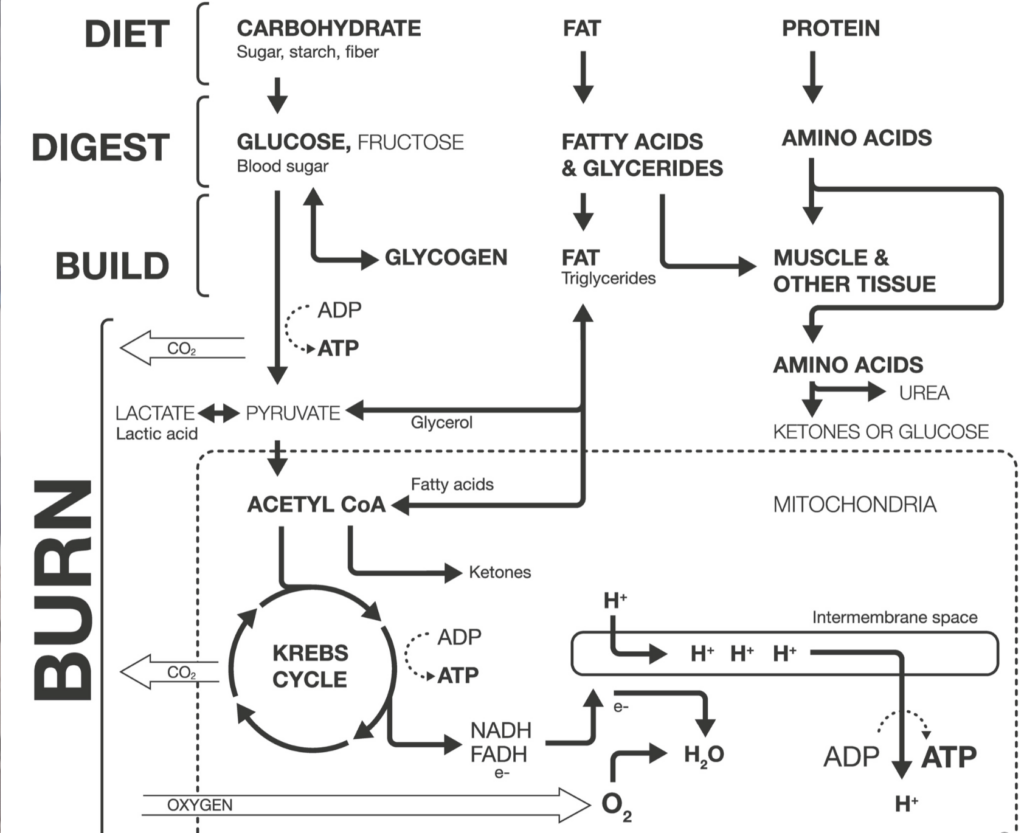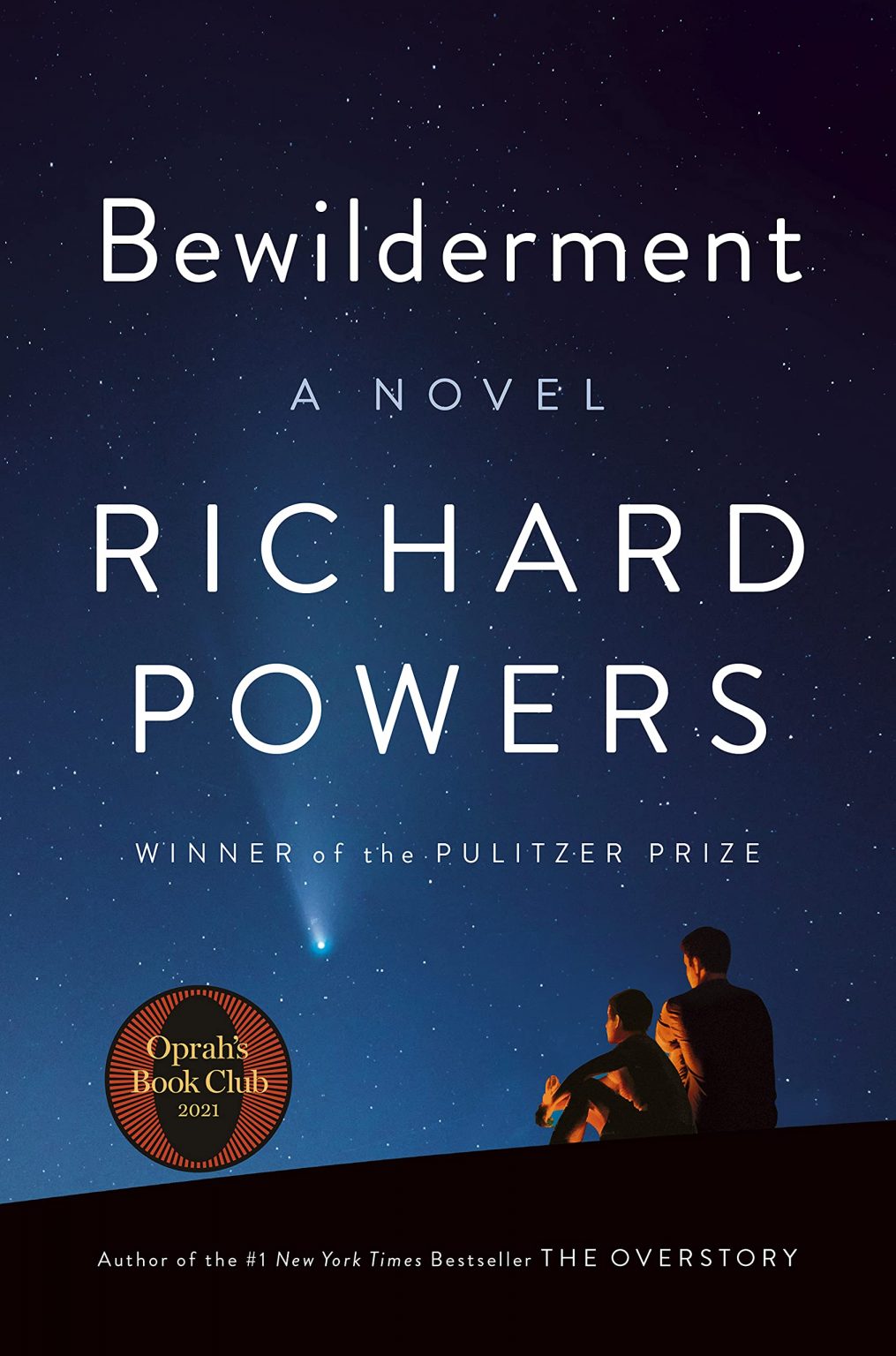P15
“ It took another two billion years for the simplest multicelled organisms, with their integrated metabolic systems and divisions of labor, to evolve. Along the way, life had to confront some major challenges in basic chemistry. ”
“We are all walking chimeras, part human and part other, performing the ordinary miracle of turning dead food into living people every day without a moment’s thought. It’s a story you’ve probably heard before, but likely with the magic boiled out of it and served cold from a textbook. It’s well worth another listen. If nothing else, it’s the essential foundation you’ll need to understand how diet affects your health and how your body burns energy—how life actually works.”
17
“Animals, plants, and all other living things are essentially “spontaneous generation machines,” assembling their bodies and those of their offspring from food, water, and air. What is a fly, after all, except a little machine that builds baby flies out of rotten meat?”
“Every molecule in your body, every pound of bone and muscle, every ounce of brain and kidney, every fingernail and eyelash, all six quarts of blood squirting around your vessels, all of it is made of reassembled bits of food you’ve eaten. The energy that keeps you moving and keeps you alive comes from your diet as well. You are what you eat isn’t just a well-worn cliché, it’s how life actually works. One shudders to think about the sizable proportion of Americans who are literally walking, talking, reformulated Big Macs. My kids are built and powered almost entirely from chicken nuggets, pasta, yogurt, and carrots. I myself am fueled largely by pretzels and beer. How does it all work?”

18
“If the food you eat is processed, low in fiber, and easily digested, the carbs are digested quickly and the sugars rush into the bloodstream, creating a huge, steep spike in blood sugar. Those foods are said to have a high glycemic index, which is the rise in blood glucose measured two hours after ingesting a particular food, relative to the rise you’d experience from eating pure glucose.”
“With trillions of bacteria, each with their own thousands of genes, the microbiome is like a four-pound superorganism living inside of you.”
19
“Our microbiome also digests other stuff that escapes the small intestine, aids in immune system activity, helps produce vitamins and other essential nutrients, and keeps the digestive tract running properly. The effects on our health, from obesity to autoimmune diseases, are wide-ranging, and new discoveries are happening every day. What we know for sure at this point is, if your microbiome isn’t happy, you aren’t happy.”
FATS
“
Fats have a fairly simple itinerary—they are digested down into fatty acids and glycerides and then built back up into fat in your body, which is eventually burned for energy. The challenge, though, is that fats are hard to digest. It comes down to basic, familiar chemistry: oil and water don’t mix. Fats (including oils) are all hydrophobic molecules, which means they won’t dissolve in water. But like all life on Earth, our body’s systems are water-based. Breaking big globs of fat down into microscopic bits isn’t possible with just water—it’s like trying to clean a greasy pan without soap. The evolutionary solution? Bile.
“Bile was long thought to play a role in our moods and temperament as one of the four humors, a fun example of clever people believing dumb things. Very smart people, from Hippocrates all the way through doctors and physiologists of the 1700s, thought that too much yellow bile made people aggressive. Doctors would bleed people with leeches if they were suspected of being out of humoral balance, which is one reason that doctors probably killed more people than they saved until the advent of modern medicine a century or so ago. Today we know that bile is the stuff that makes fat digestion work.”
21
Proteins
“We pee out the equivalent of fifty grams (about two ounces) of protein each day. Exercise adds to that total by increasing muscle breakdown. We have to eat enough protein to replace what we lose each day, lest we find ourselves in protein deficit. If we eat more protein than we need, the extra amino acids are converted to urea and cleared out by the urine. This can make for some very expensive pee if you overdo it on the protein supplements.”
22 Burning Fat, Getting Fat, and Going Keto
“Fat is the main fuel on a low-carb diet, and if you eat fewer calories than you burn, the deficit will be met by burning stored fat for energy. Some of this fat will be processed into ketones prior to burning. For example, the brain is a particularly picky eater and generally uses only glucose for metabolism, but if there’s no glucose available, it will switch to burning ketones.”
“In fact, like any good, flexible transit system, our metabolic pathways are evolved to respond to traffic conditions and send molecules to their most sensible destinations.* Got more sugars than you need? Send the extra glucose and fructose to glycogen. Glycogen stores full? Send the excess sugar to acetyl CoA. If the Krebs cycle train is overcrowded because energy demands are low, start sending acetyl CoA to fat. And there’s always plenty of space available in fat. Glycogen stores fill up, and you can’t store excess protein, but there’s no limit to how much fat you can layer on.
“And that’s why we should be suspicious of any diets that target one specific nutrient as a hero or a villain for weight loss. Nothing is innocent if eaten in excess. Any calories that aren’t burned, no matter if they come from starches, sugars, fats, or proteins, will wind up as extra tissue in your body. If you’re pregnant or bulking up at the gym, that extra tissue might be useful things like organs or muscle. But if you’re not, those extra calories, no matter their original dietary source, will end up as fat. That’s the foundation we need to understand to begin talking about all the real-world complexities of diet and metabolic health. We’ll talk a lot more about diets and the evidence for what works and what doesn’t in Chapters 5 and 6.”
P23 Poisoned by Plants
“Then it begins to sink in. Feeling bad for the elephants is a luxury of life in the industrialized world, experiencing nature through a television screen. To grow up in it, to live in nature every day, is to understand that it doesn’t want to snuggle. There’s no majestic drama playing itself out for the benefit of your spiritual growth. Instead, you are part of a jumbled crowd of species, some malevolent, others indifferent, none of them your friends. Hadza hate elephants because elephants are massive and ornery and occasionally kill Hadza. They view elephants with about the same affection as they view snakes, and Hadza people hate snakes.”
“The Hadza don’t weep for the animals they hunt and kill, any more than you cry over a cup of yogurt. They are not cynical or jaded, but they know the deal. Being part of the ecosystem means eating others, whether it’s plants or animals. The wild hunting dogs that catch your scent on the breeze and turn to follow will feel no remorse as they tear your innards out. Nothing personal, it’s just business. Understanding life in a real, functioning ecosystem requires us to abandon the romantic, Disneyesque mythologies that we’re fed growing up in our sheltered suburbias.”
“Understanding the world through the lens of evolution is a similarly disorienting wake-up call. What Darwin saw clearly for the first time was that species are all competing for limited resources, struggling to find food without becoming dinner. There is neither “good” nor “bad” in nature—we place those cultural assessments on an otherwise amoral and indifferent cast of characters. Even things that seem clearly done for our benefit are driven by evolutionarily selfish ulterior motives. Fruits, those gifts from the tree, heavy with sweet flesh, are simply a clever way of dispersing seeds. Dogs have evolved to prey on our emotions and make us love them because humans are a great source of dog food. And the lush green plants that fill our planet with life? They’ve been quietly poisoning us for two and half billion years.”



